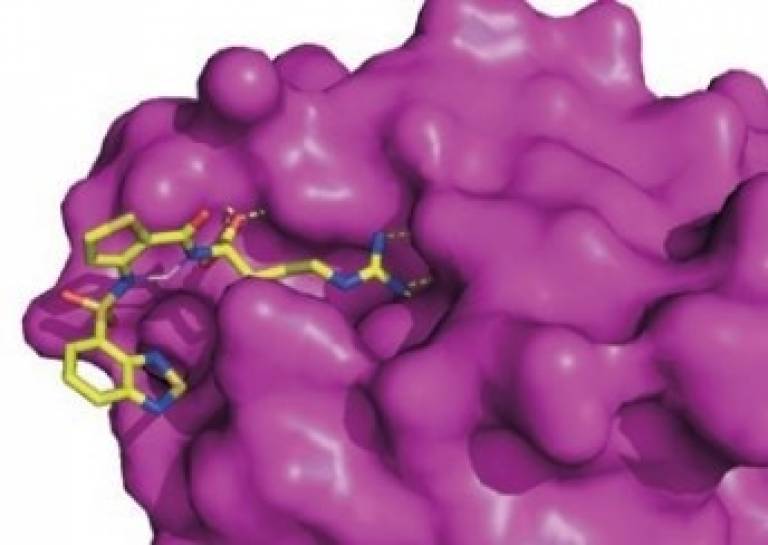Professor David Selwood - the Drug Designer
Professor Selwood's approach led to the development of VSN16R to treat involuntary muscle contraction in multiple sclerosis, by building new drug compounds specifically to target known structures.

2 January 2020
Professor David Selwood is a designer and creator of new drugs, by building compounds specifically to target known structures. This approach has led to the development of VSN16R to treat involuntary muscle contraction in multiple sclerosis.
Professor Selwood’s approach to drug design exploits the power of modern computing and advances in structural biology. Starting with the structure of a target, his aim is to design compounds that will bind to an active site, to inhibit activity or to mimic the activity of a natural signalling molecule. In the latter case, the challenge is to design a chemical analogue that retains the required biological properties, is metabolised more slowly than natural biological mediators, and can be synthesised in the lab.
Development of VSN16R followed precisely this route. It is based on a naturally occurring lipid signalling molecule, anandamide, which showed interesting properties in animal models of multiple sclerosis, work carried out in collaboration with Professor David
Baker. VSN16R targets spasticity, an involuntary prolonged muscle contraction commonly experienced by multiple sclerosis patients.
Although some drugs are available to treat spasticity, they do not work for everyone and have severe side-effects, including sedation and cognitive dysfunction, so there is a great need for alternatives.
VSN16R has been designed to act on a receptor not targeted by existing treatments. With promising pilot data, Professor Selwood was able to obtain translational funding from the Wellcome Trust, and later substantial Technology Strategy Board and commercial investment, to support studies at least as far as phase I.
In November 2013, phase I trials of VSN16R began on 72 healthy volunteers. With input from UCLBusiness, he has also established a spinout company, Canbex Ltd, to manage the IP associated with VSN16R. Initially set up as a lean, low-cost vehicle specifically for VSN16R, Canbex is now providing a route for its development and further commercialisation.
 Close
Close

